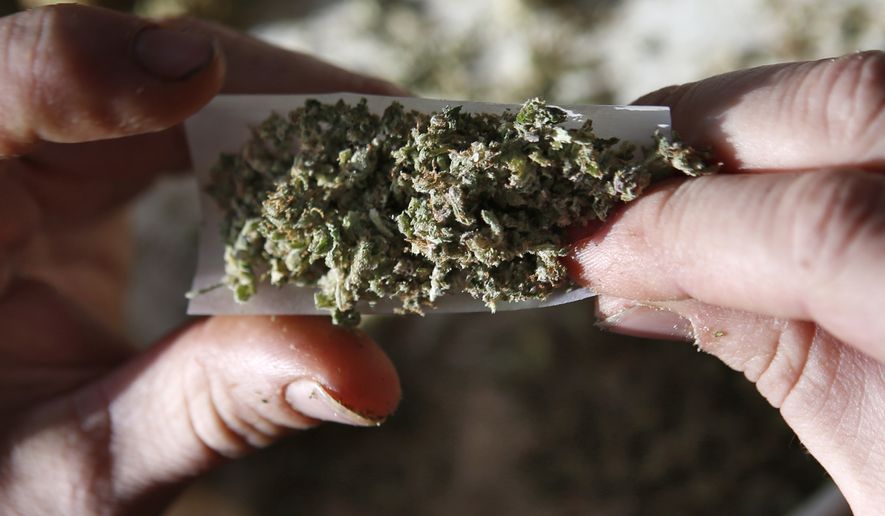Adults in Maine will likely be able to legally grow, possess and use marijuana for recreational purposes in a matter of weeks after anti-pot activists agreed to accept the results of a closely contested ballot measure that narrowly passed last month, the secretary of state’s office said Monday.
An opposition group’s decision to abandon calls for a recount over the weekend means Maine Secretary of State Matthew Dunlap will soon have to certify the results of Question 1, a recreational marijuana ballot measure approved by voters on Nov 8. by a margin of just over 4,000 votes.
Mr. Dunlap will likely certify those results this week and then send them to Gov. Paul LePage, said Kristen Muszynski, a spokeswoman for the Secretary of State’s Office, the Portland Press Herald reported Monday.
Once on the governor’s desk, Mr. LePage will have 10 days to issue a proclamation of the results. From there, it’ll take another 30 days before the state’s recreational weed law officially takes effect.
When the legislation is once and for all added to Maine’s law books — likely at the end of next month or in early February 2017 — adults over the age of 21 will legally be allowed to privately smoke marijuana, possess up to 2½ ounces of the pot and harvest a limited number of plants for personal use. The law will also pave the way for adults to buy weed from recreational dispensaries, but the state isn’t expect to start giving pot shops the green light to operate until 2018.
Voters in three other states — California, Massachusetts and Nevada — approved similar measures states last month legalizing marijuana for recreational use, notwithstanding the federal government’s longstanding prohibition on pot.
A razor-thin margin in Maine nearly prevented Question 1 from passing, however, and spurred anti-weed activists from the No on 1 campaign to demand a recount. That effort was ultimately canceled on Saturday after a review of 30 percent of ballots suggested the pro-pot measure was poised to pass.
“We promised folks that if we came to a point where we could not see any chance of reversing the result, we would not drag the process out,” said Newell Augur, attorney for the “No on 1” campaign.
“We are excited and grateful that the ’No on 1’ campaign has decided not to drag this out any longer so we can start the business of implementation and responsibly regulate marijuana,” said David Boyer, manager of the “Yes on 1” campaign.
Attorneys from both campaigns were slated to meet Tuesday with election officials in Augusta to review any disputed ballots before passing the results to the Secretary of State’s Office to be certified, Ms. Muszynski said.
Mr. LePage, the state’s Republican governor, previously said he’d consider finding a way to legally intervene if voters agreed to legalize recreational marijuana in Maine, the Press Herald reported Monday. More recently, however, he said he’d seek guidance from the administration of President-elect Donald Trump, who has said he personally believes marijuana legalization should be settled state-by-state.
In addition to the four states that passed recreational marijuana laws as a result of last month’s election, voters in Colorado, Washington, Oregon, Alaska and Washington, D.C., have previously approved legal weed measures of their own in defiance of the federal ban. Maine legalized medical marijuana in 1999 and remains one of 28 states where doctors can prescribe pot to patients suffering from certain conditions.
Massachusetts’ recently approved recreational marijuana law went into effect last week, but adults in California and Nevada will have to wait with Mainers until early 2018 to legally use, possess and harvest weed for non-medical reasons.
• Andrew Blake can be reached at ablake@washingtontimes.com.




Please read our comment policy before commenting.